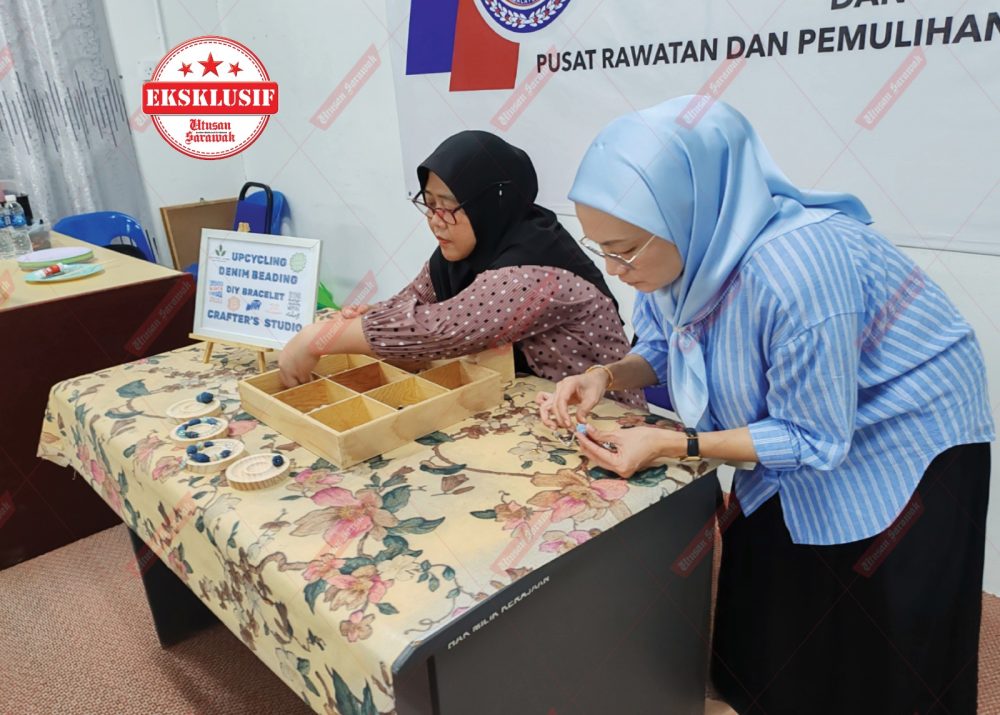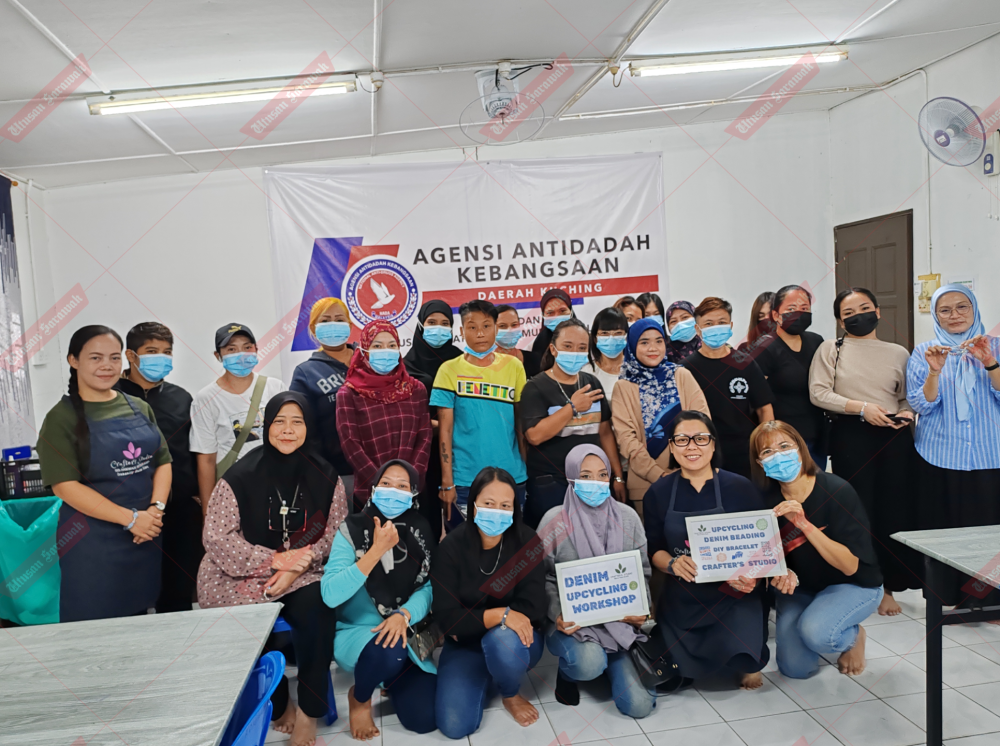
KUCHING: Kasmayati Ahmad has a calming effect on people, coupled with her warm smile, the kind that instantly puts anyone at ease. Yet behind that smile lies 21 years of stories that could break any heart.
As the National Anti-Drugs Agency (AADK) officer in charge of Prevention and Education in Sarawak, Kasmayati has lived through the highs and lows of working with addicts, especially students.
“There were many times when I cried inside,” she admitted. When I saw a sad story unfold, or when someone relapsed after all the effort, it felt like my energy and time were never enough.”
She never allowed those emotions to show. Instead, she carried on as if nothing had happened, steady, composed, and professional.
“I told myself, it was just one of those days.”
Her task is enormous. She oversees preventive work in 45 schools across Kuching, Bau, and Lundu. For her, every student is a responsibility to protect them before drugs find a way in, and to guide them if they have already stumbled.

The most painful part of her job is listening to the voices of the young.
“The hardest question I ask them is, why did you take drugs?”
Her voice wavers as she recalls the answers.
“Some talk about poverty, some about broken families, some about being forced to grow up too fast. They turn to drugs not because they are weak, but because they cannot carry the weight of their problems.”
Kasmayati believes deeply in prevention. Through the “Camp Shields” programme ‘Sayang, Hidup Elak Derita Selamanya’, AADK has built layers of protection for students that included early detection, life skills, stress management, family involvement, and above all, awareness.
To her, these shields are not just strategies, but lifelines. Still, there are days when the work takes its toll.
“We can only do so much. At the end of the day, the person must want to quit himself. We can guide, but the choice must be theirs.”
Even so, Kasmayati refuses to let fatigue or frustration overwhelm her. She knows that every student who stays clean, every addict who chooses to recover, makes the struggle worthwhile.
“As long as I am in this job,” she said smiling, “I will continue to give my very best.”
Kasmayati’s role extends beyond schools. She has been invited to conduct awareness talks for public and private organisations, and at times her team is called to conduct workplace urine tests when drug use is suspected.
For her, she will always continue to fight not just against drugs but for the future of Sarawak’s children so that she will not lost them to the streets.
By Connie Chieng